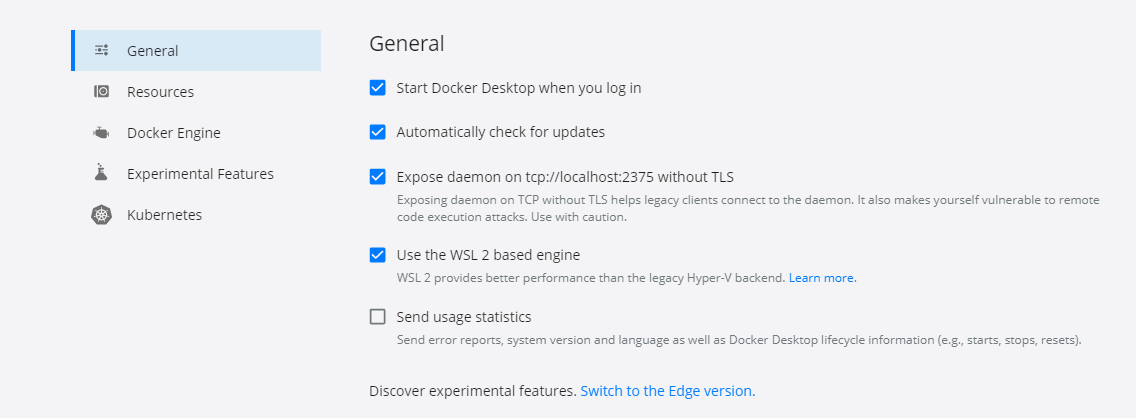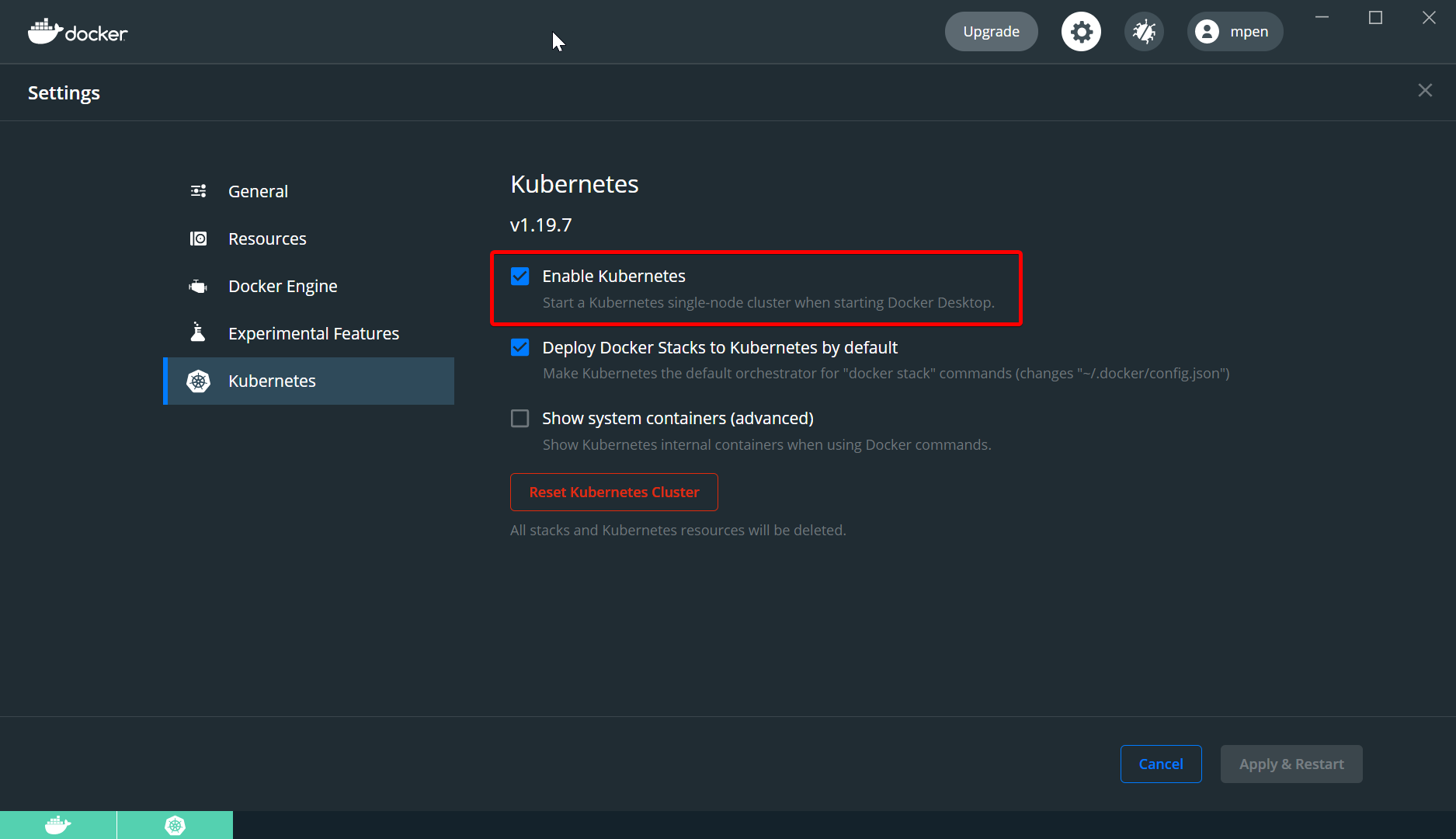Thanks for additional clarifications. I have all that, except under docker desktop | settings | resources | wsl integration i don't have "enable integration with additional distros" because "Ubuntu-20.04" is configured as my default wsl2 distro.
That said on my wsl2 ubuntu 20.04 terminal if i enter sudo service docker status [ or start ] i get docker: unrecognized service. On that distro i have sudo apt install docker.io and i'm wondering what other apt docker package one installs to enable controlling the windows docker desktop service [ "%programfiles%\Docker\Docker\Docker Desktop.exe" ] from the wsl2 ubuntu command line.











When running docker desktop version 2.1.5.0 (40323) on:
OS Name: Microsoft Windows 10 Pro OS Version: 10.0.19013 N/A Build 19013
Eben though WSL 2 based engine is enabled in Settings/General
docker container run hello-world on Ubuntu reports
docker: Cannot connect to the Docker daemon at unix:///var/run/docker.sock. Is the docker daemon running?. See 'docker run --help'.